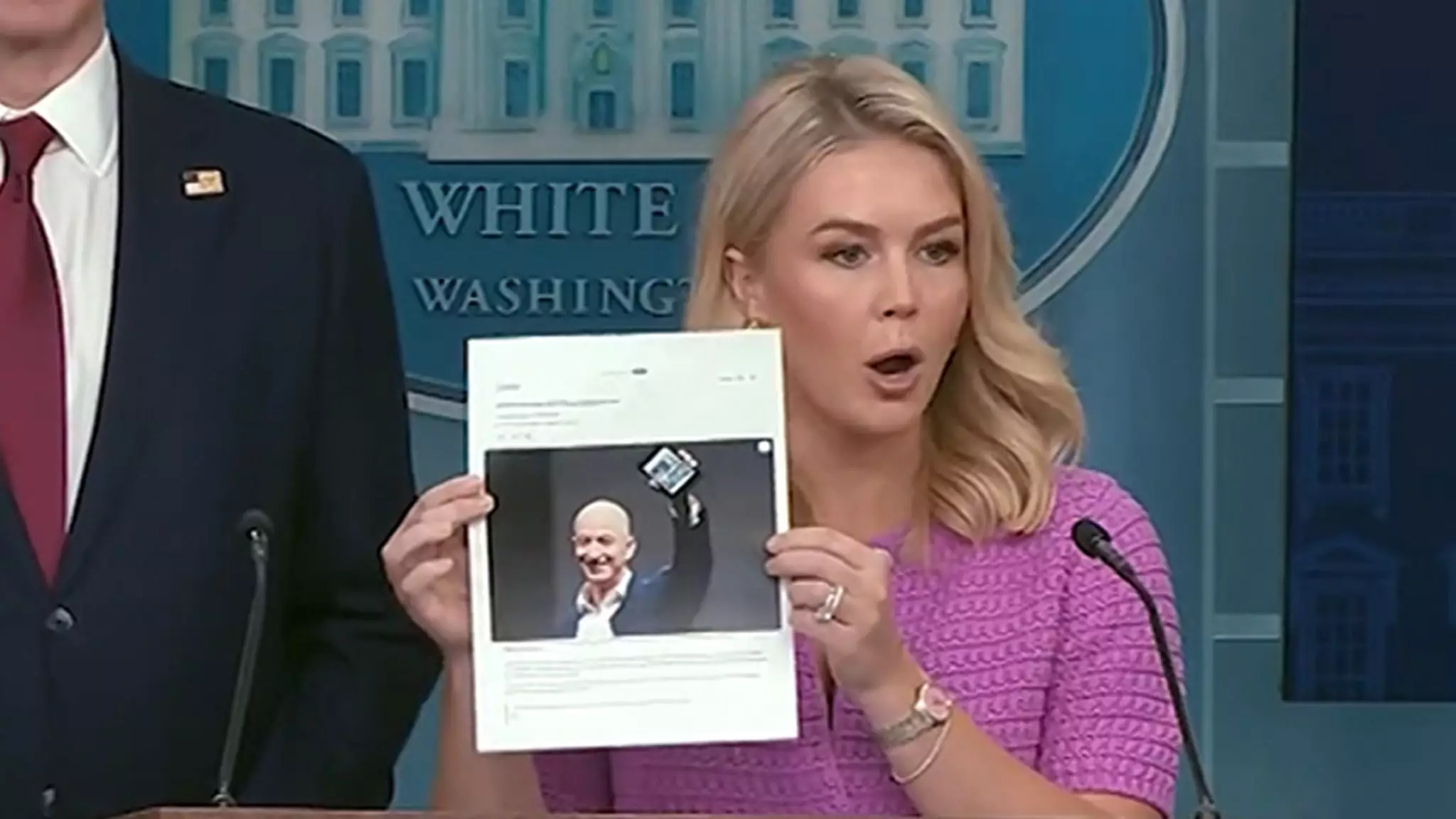The world of e-commerce has taken an unexpected turn with a proposed Amazon feature that aims to disclose the financial impact of President Donald Trump’s tariffs on consumer prices. This move, however, has led to significant backlash from the Trump Administration, with White House Press Secretary Karoline Leavitt labeling it a “hostile and political act.” In the current polarized political climate, Amazon’s initiative highlights the intersection of business and politics, raising questions about the responsibilities of corporations to act transparently, especially during contentious political climates.
Leavitt’s concerns arise from a report suggesting that Amazon would include a line on their online checkout page, indicating how much of a product price can be attributed to tariffs implemented during Trump’s presidency. Her assertion that Amazon should have implemented similar transparency regarding inflation under President Joe Biden underscores a selective application of accountability that could benefit from a thorough examination. Her pointing out this double standard is a powerful reminder of how easily corporate actions can be twisted to align with political narratives.
Amazon’s Response and the Reality of Corporate Messaging
In a swift response to the allegations, Amazon clarified that the initiative was aimed solely at its Amazon Haul store and not the main platform, thus downplaying the extent of the proposed changes. This contradiction raises an essential question: To what extent should corporations participate in political discourse? While transparency regarding pricing is vital for informed consumer choices, this could also usher in unnecessary politicization of retail experiences.
Additionally, Leavitt’s references to an older article about Amazon’s partnership with Chinese narratives only serve to amplify the complexities inherent in global trade and corporate affiliations. The partnership question looms large, especially in an age where consumers increasingly scrutinize the ethical stances of the brands they support. If this partnership remains active, it suggests a disconnect between Amazon’s corporate ethics and the patriotic sentiments Leavitt espoused about supporting American products.
The Broader Economic Context
During the White House briefing, Treasury Secretary Scott Bessent further emphasized the repercussions of tariffs, arguing that China could face severe job losses due to the U.S.’s economic stance. This assertion brings to light the broader implications of tariffs, not just for American consumers but also for foreign economies. It raises fundamental questions about the sustainability of such economic policies—can a nation thrive on the premise of protectionism without harming global trade relations?
In a globalized economy where supply chains are intricately interconnected, the consequences of tariffs ripple beyond borders. The potential to alienate consumers through political messaging in e-commerce could backfire, leading to an aversion to brands perceived as overtly politicized. Ultimately, while businesses like Amazon may aim to empower consumer choice through transparency, they must navigate the treacherous waters of political sentiment with care.
In essence, Amazon’s proposed charge breakdown might seem like a straightforward step towards consumer awareness, but given the charged political atmosphere, it highlights the necessity of careful corporate communication. As political tensions continue to rise, the responsibility to balance transparency with sensitivity has never been more critical for companies operating on a global scale.

